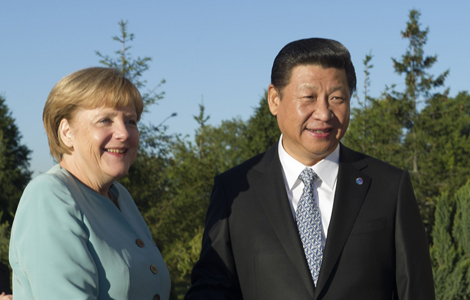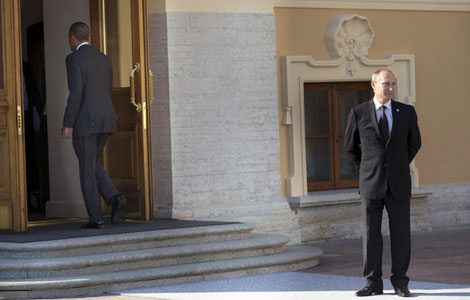US military cracked most online encryption
Updated: 2013-09-06 16:36
(Agencies)
|
||||||||
GCHQ, they said, developed "new access opportunities" into Google's computers by 2012 but said the newly released documents didn't elaborate on how extensive the project was or what kind of data it could access.
Even though the latest document disclosures suggest the NSA is able to compromise many encryption programs, Snowden himself touted using encryption software when he first surfaced with his media revelations in June.
During a Web chat organized by the Guardian on June 17, Snowden told one questioner that "encryption works." Snowden said that "properly implemented strong crypto systems" were reliable, but he then alluded to the NSA's capability to crack tough encryption systems. "Unfortunately, endpoint security is so terrifically weak that NSA can frequently find ways around it," Snowden said.
It was unclear if Snowden drew a distinction between everyday encryption used on the Internet - the kind described in Thursday's reports - versus more-secure encryption algorithms used to store data on hard drives and often requires more processing power to break or decode. Snowden used an encrypted email account from a now-closed private email company, Lavabit, when he sent out invitations to a mid-July meeting at Moscow's Sheremetyevo International Airport.
The operator of Lavabit LLC, Ladar Levison, suspended operations of the encrypted mail service in August, citing a pending "fight in the 4th (US) Circuit Court of Appeals." Levison did not explain the pressures that forced him to shut the firm down but added that "a favorable decision would allow me to resurrect Lavabit as an American company."
The government asked the news organizations not to publish their stories, saying foreign enemies would switch to new forms of communication and make it harder for the NSA to break. The organizations removed some specific details but still published the story, they said, because of the "value of a public debate regarding government actions that weaken the most powerful tools for protecting the privacy of Americans and others."
Such tensions between government officials and journalists, while not new, have become more apparent since Snowden's leaks. Last month, Guardian editor Alan Rusbridger said that British government officials came by his newspaper's London offices to destroy hard drives containing leaked information. "You've had your debate," one UK official told him. "There's no need to write any more."
Most Viewed
Editor's Picks

|

|

|

|

|

|
Today's Top News
President calls for worldwide free trade
Xi, Obama discuss Asia-Pacific
Xi warns Abe over Diaoyu Islands
Think tank seeks G20 secretariat
Speech earns praise from global leaders
NASA back to the moon
Artist imbues modern cityscapes with ancient flavor
Lessons in young love
US Weekly

|

|














